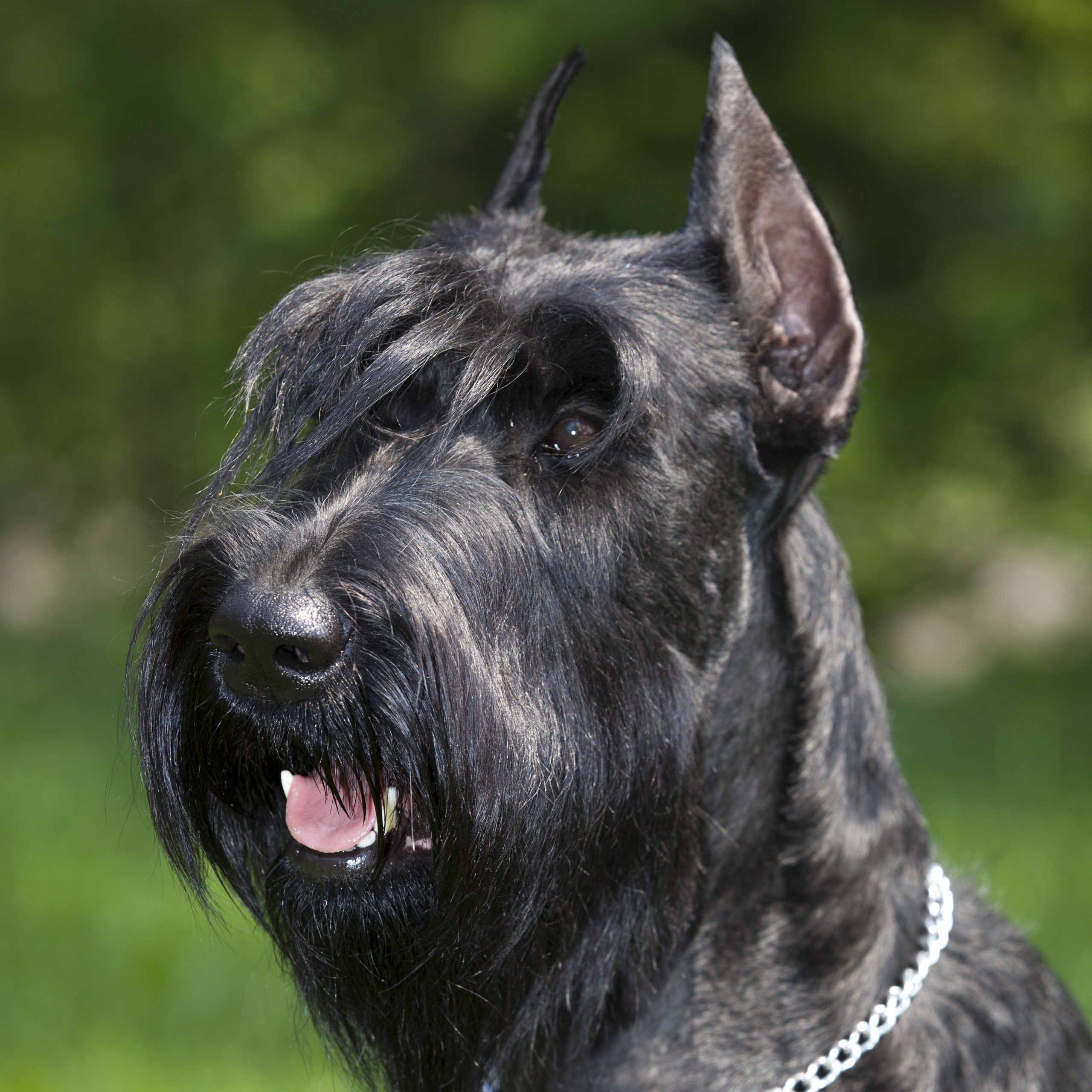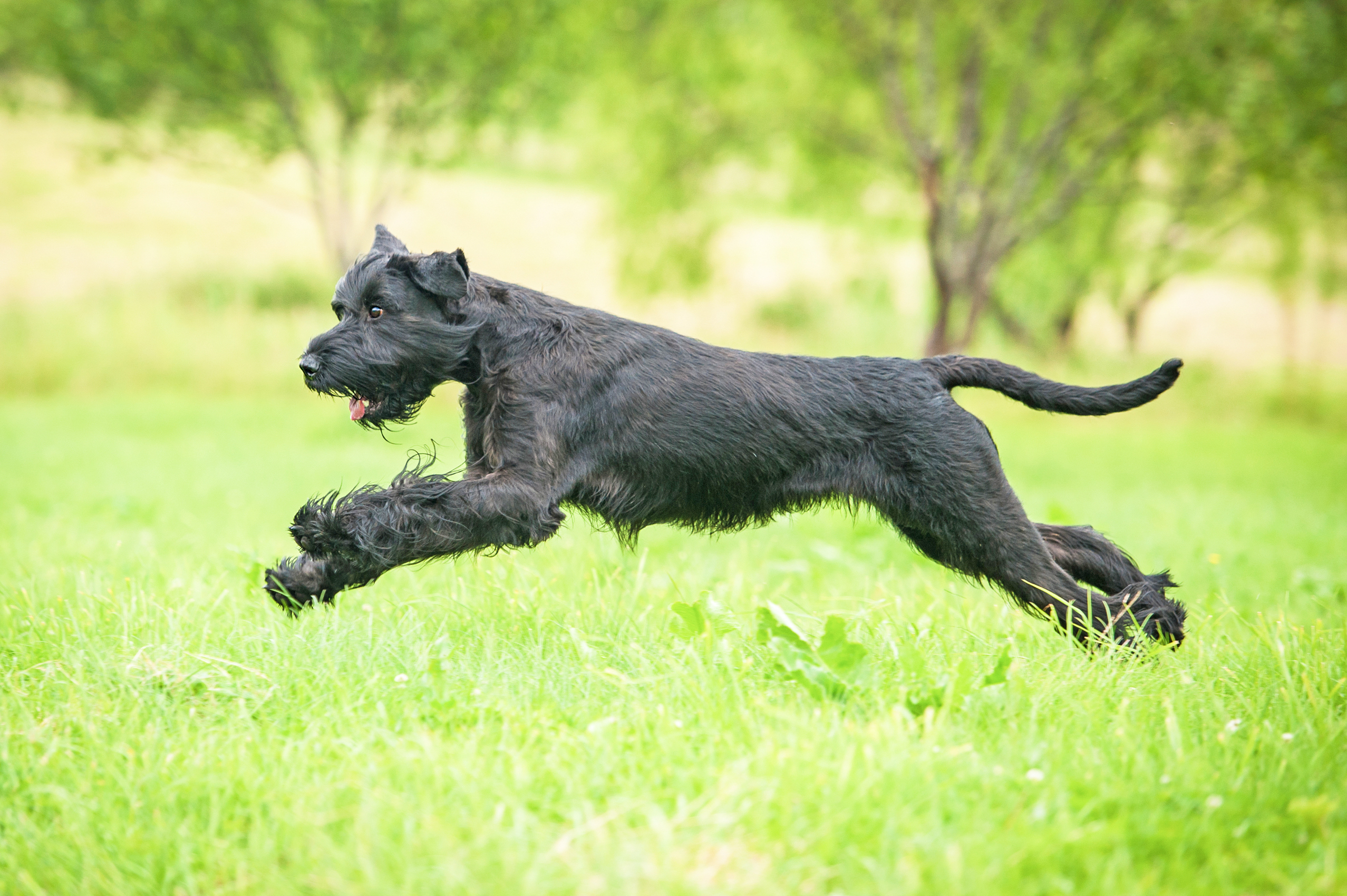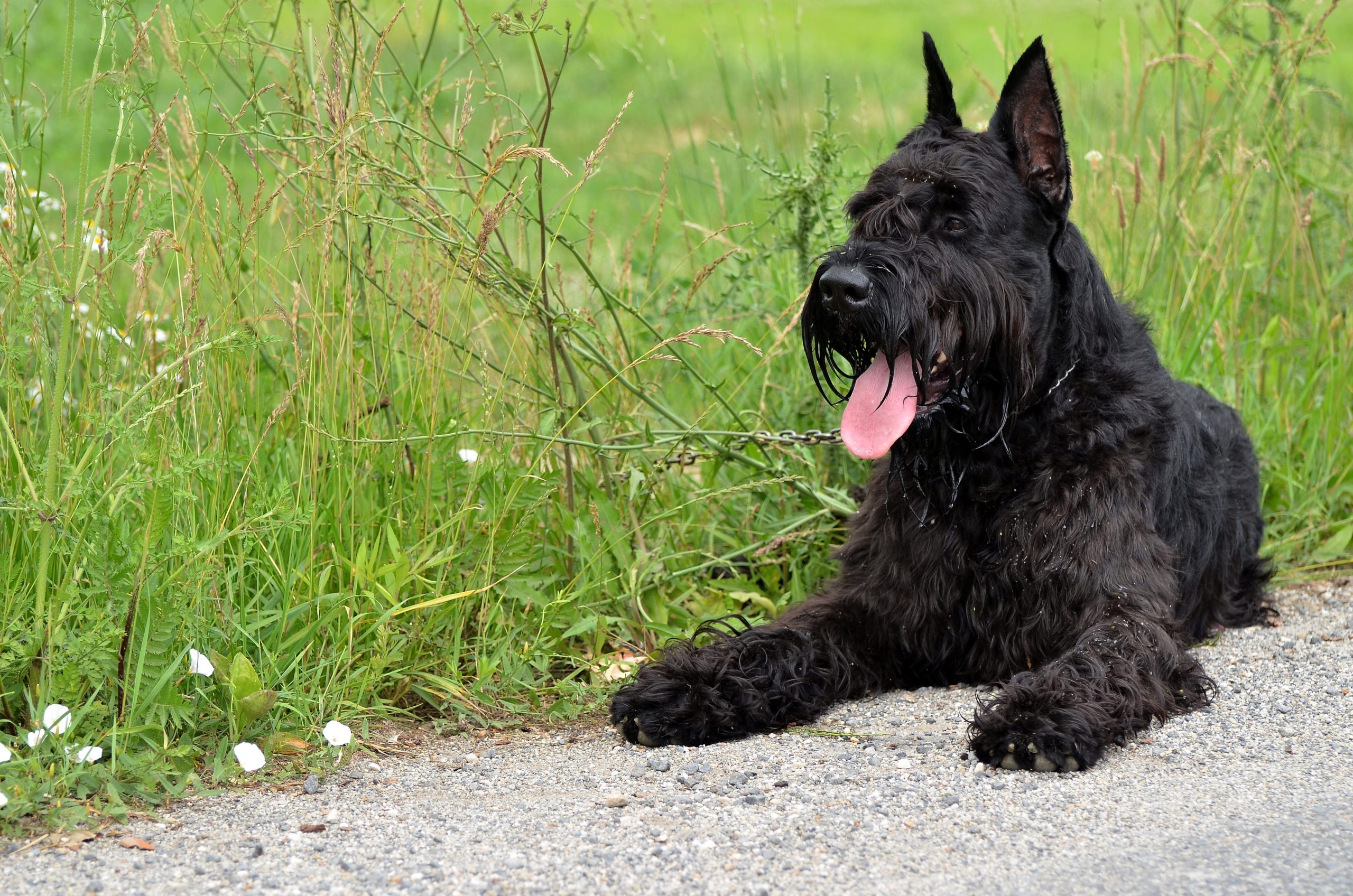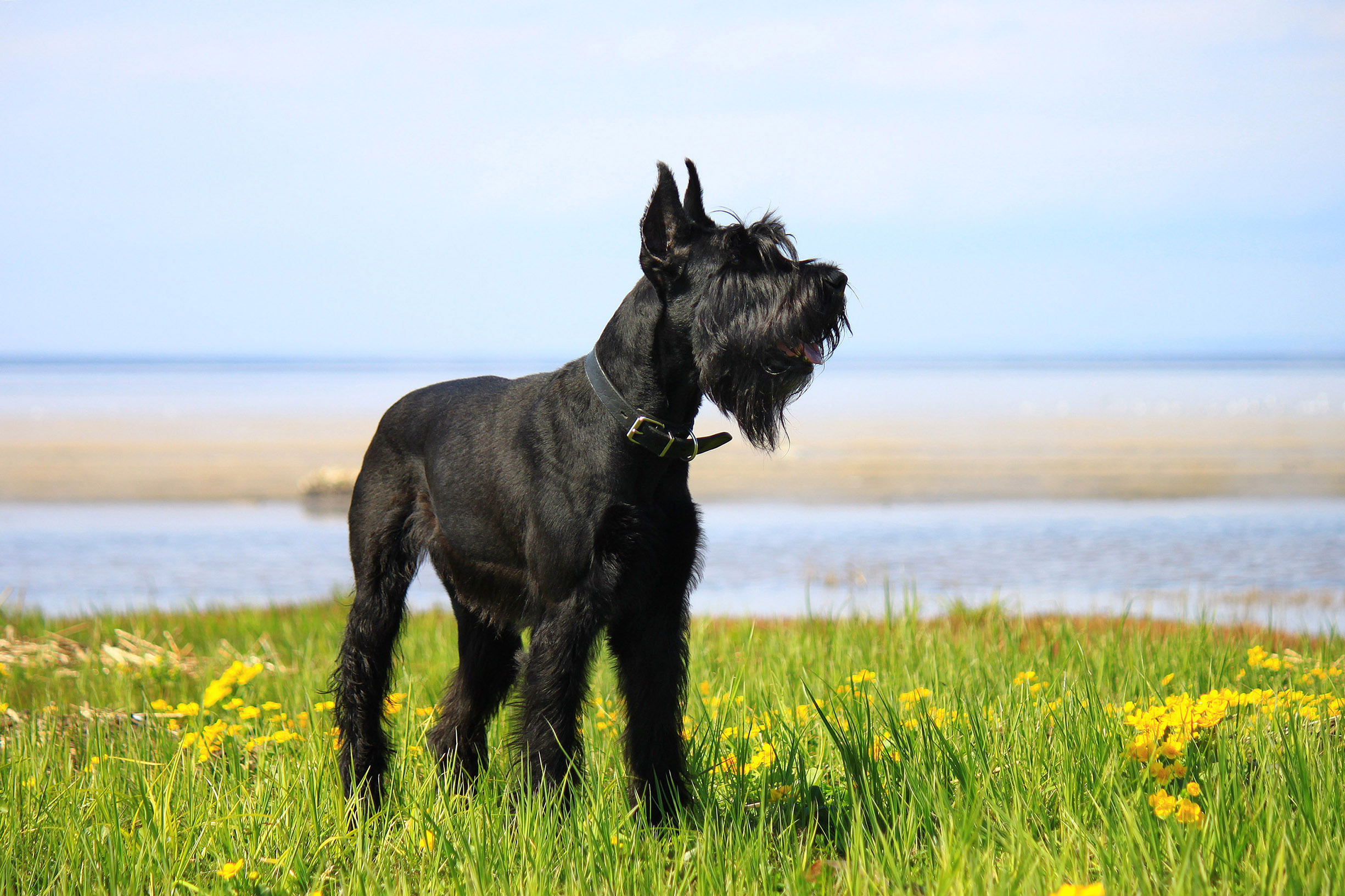Giant Schnauzer
No products found which match your selection.
Shelter Dog Meal Donation Count:
No products found which match your selection.
The Giant Schnauzer is a robust and powerful dog, originally bred for driving cattle and working as a guard dog. They are highly valued for their intelligence, loyalty, and protective instincts.
The Giant Schnauzer is the largest of the three Schnauzer breeds and was originally bred to drive cattle and as a versatile working dog.

Originating in the Bavarian Alps of Germany, they were used for guarding breweries, butchers, and farms. The breed gained prominence as a military and police dog.




Prone to health issues like hip dysplasia, bloat (gastric torsion), and eye problems. Regular health screenings are recommended.
Their wiry coat requires regular grooming, including brushing, clipping, and hand-stripping. Regular beard and eyebrow maintenance is also necessary.
High energy levels require daily exercise. Activities like long walks, running, and agility training are ideal for keeping them physically and mentally fit.
Intelligent and sometimes strong-willed, they respond well to firm, consistent training. Early socialization is crucial for well-rounded behavior.
A balanced diet is important for their size, age, and activity level. Proper nutrition is key to maintaining their health and vigor.
The Giant Schnauzer is an excellent breed for active families or individuals looking for a loyal, protective, and energetic companion. They can be a commanding and affectionate family member with proper care, training, and nutrition.
The Giant Schnauzer, known for its robustness and commanding presence, is generally healthy but can be predisposed to certain health issues. Awareness and appropriate health testing are essential for maintaining their well-being. Here's a list of common health issues in Giant Schnauzers and the recommended tests for these conditions:
Ensuring that Giant Schnauzers undergo these health tests can help in the early detection and management of these conditions. Regular veterinary check-ups, a balanced diet, and maintaining a healthy lifestyle, including appropriate exercise, are key factors in promoting the long-term health of Giant Schnauzers.
The iHeartDogs Free Rx Discount Card Program is a pet prescription discount card that can help you save money on your furry friend’s medications. The card is free to sign up for, and you can use it at participating pharmacies nationwide. To use the free program, simply show the card to your pharmacist when you pick up your pet’s prescription. The pharmacist will then scan the card, and you will receive a discount on the price of the medication.LEARN MORE
Caring for a Giant Schnauzer involves various expenses, and the total annual cost can vary depending on factors such as your location, the dog’s individual health needs, and the standard of care you provide. Here’s a breakdown of the typical expenses involved in caring for a Giant Schnauzer:
Total Estimated Annual Cost:
$2850 - $8400
It's important to note that these figures are estimates and can vary. Also, the first year of owning a dog can be more expensive due to one-time costs like spaying/neutering, initial vaccinations, and training. Regular budgeting for your dog's needs and an emergency fund for unforeseen costs are essential for responsible pet ownership.